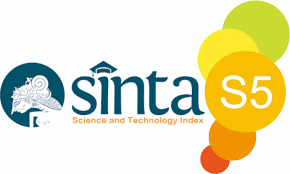Profitabilitas Dan Aktiva Tetap Pada Hasil Operasi Dengan Return On Assets (Roa) Di PT. Indosat Tbk
DOI:
https://doi.org/10.30606/cano.v8i2.43Keywords:
Financial Statements, Profitability, Fixed Assets, RoAAbstract
The purpose of this study is to find out the analysis of financial statement information on profitability and fixed assets on the results of operations with return on assets at PT Indosat Tbk. Pt Indosat company profit / loss report in 2017 May 211,241 August 1,214,609 in 2018 May (465,771) in August (571,049). This study uses qualitative research methods, research methods that are based on the philosophy of postpositivism. The results of this study For profitability ratios, companies tend to not be able to maintain the stability of the earnings gain both net income, gross profit, and operating profit. In total, asset use activities in May 2017 - August 2018 tend to experience a decrease in the first quarter from Rp. 50,661,040 to Rp. 5,024,547 and in Quarter II Rp. 50,661,040 to Rp. 49,857,461 annually in each ratio. The use of company assets seen from the ratio of activity is still not good, because in the last year (2017-2018) it tends to decrease. The decline in all profitability ratios in 2018 was caused by the impact of prepaid SIM card registration so that company sales declined. The slow turnover of working capital caused by operational activities in generating profits is still financed by current debt compared to current assets, causing income to be low.
Downloads
References
A Helfert, 2003. Erich, D.D.A. Analisis Laporan Keuangan. Edisi Ketujuh Penerbit Erlangga.
Bambang Riyanto. 2001. Dasar-dasar Pembelanjaan Perusahaan. BPFE, Yogyakarta.
Bastian, Indra, dan Gatot Soepriyanto.2010. Sistem Akuntansi Sektor Publik; Konsep untuk Pembangunan Daerah. Jakarta: Salemba Empat.
Baridwan, Zaki. 2004. Intermediate Accounting. Edisi Kedelapan. Yogyakarta: BPFE.
Brigham, Eugene F dan Joel F Houston. 2003. Fundamentals of Financial Management: Dasar-Dasar Manajemen Keuangan. Buku Satu Edisi Kesepuluh. Jakarta: Salemba Empat.
Dwi, Martani., dkk. (2012). Akuntansi Keuangan Menengah Berbasis PSAK.Buku 1. Jakarta: Salemba Empat.
Halim, Abdul dan Mamduh M. Hanafi. 2009. Analisis Laporan Keuangan. Edisi 4. UPP STIM YKPN. Yogyakarta.
Henni Van Greuning, 2005. Standar Pelaporan Keuangan Internasional : Pedoman Praktis, Jakarta: Salemba Empat. (Penerjemah: Edward Tanujaya)
Kasma, Juan. 2012. Standard Operating Procedure Perpajakan Perusahaan Jasa. Bandung: Alfabeta.
Kasmir. 2008. Analisis Laporan Keuangan. Jakarta: Raja Grafindo Parsada.
Kasmir.(2012), Analisis Laporan Keuangan.Jakarta : PT. Raja Grafindo Persada.
Kasmir. 2016. Analisis Laporan Keuangan. Jakarta: Raja Grafindo Persada.
Kieso, Donald E., Jerry J. Weygandt, dan Terry D. Warfield, 2002. Akuntansi Intermediete, Terjemahan Emil Salim, Jilid 1, Edisi Kesepuluh, Penerbit Erlangga, Jakarta.
Keown, Arthur J. et al. 2008. Manajemen Keuangan : Prinsip dan Penerapan. Jakarta: Salemba Empat.
L. M. Samryn, 2011, Pengantar Akuntansi, Edisi Pertama, Penerbit Raja Grafindo Persada, Jakarta.
Moh Nazir, 2011. Metode Penelitian. Cetakan 6. Bogor: Penerbit Ghalia.
Peraturan Presiden Nomor 111 Tahun 2007
Rudianto.(2009). Akuntansi Manajemen. Yogyakarta: Grasindo
Standar Akuntansi Keuangan, (2011)

